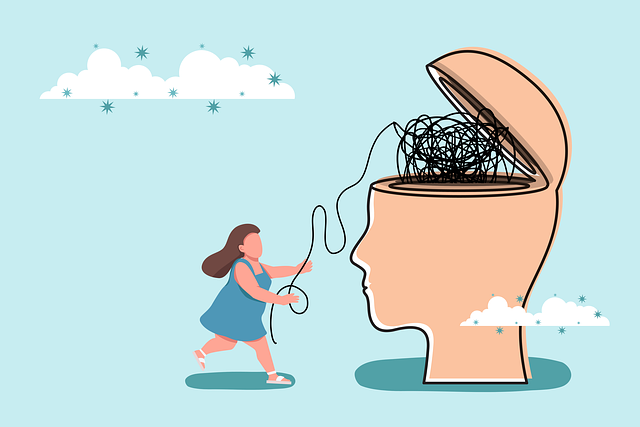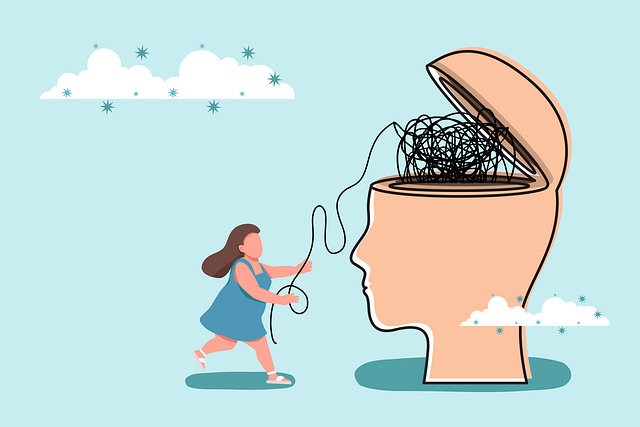Recognizing subtle signs of depression is crucial for prevention, especially at Northglenn American Sign Language (ASL) Therapy, enabling early intervention and reducing depressive episode severity. Persistent sadness, changes in appetite/sleep, fatigue, concentration issues, and physical symptoms are indicators to watch for. Normalizing depression discussions through ASL therapy empowers individuals to recognize their signs and develop effective self-care routines. This method uses non-verbal cues for emotional healing, fostering community and Mind Over Matter coping skills. Proactive mental health maintenance, tailored support, and diverse techniques like mindfulness, CBT, art, and music therapy reduce the risk of depressive episodes in Northglenn ASL Therapy.
Depression is a prevalent yet complex condition, but prevention is key. In this article, we explore vital strategies to combat depression before it takes hold. We delve into recognizing subtle signs and symptoms, emphasizing early detection as a powerful tool. Furthermore, we introduce the transformative power of Northglenn American Sign Language (ASL) therapy, offering unique communication support and fostering community for those seeking understanding. By combining awareness with innovative therapeutic methods, individuals can proactively cultivate resilience and maintain mental well-being.
- Recognizing the Signs of Depression: Early Detection is Key
- Northglenn American Sign Language (ASL) Therapy: Unlocking Communication and Support
- Proactive Prevention Techniques for a Healthier Mindset
Recognizing the Signs of Depression: Early Detection is Key

Recognizing the subtle signs and symptoms of depression is an essential first step in its prevention, especially for individuals like those served by Northglenn American Sign Language Therapy. Early detection allows for timely intervention, which can significantly mitigate the severity of depressive episodes. Many people struggling with depression may exhibit changes in their daily routines or social interactions that could go unnoticed without keen observation. These signs might include persistent feelings of sadness, loss of interest in activities once enjoyed, changes in appetite and sleep patterns, fatigue, difficulty concentrating, and even physical symptoms like headaches or body aches.
Healthcare providers play a crucial role in Burnout Prevention Strategies by encouraging open conversations about mental health. Encouraging patients to seek help early can be life-changing, leading to the development of effective Self-Care Routine practices that promote better Mental Wellness. By raising awareness and normalizing discussions about depression, we can create an environment where individuals feel empowered to recognize their own signs and take proactive steps towards a healthier mindset.
Northglenn American Sign Language (ASL) Therapy: Unlocking Communication and Support

In Northglenn, American Sign Language (ASL) therapy is emerging as a powerful tool in the prevention and management of depression. This unique approach goes beyond traditional talk therapy by unlocking communication barriers and providing an accessible means for individuals to express their emotions and connect with others. ASL therapists utilize sign language not only as a mode of communication but also as a therapeutic medium, fostering emotional healing processes through non-verbal gestures and facial expressions that can convey depth of feeling.
By integrating Mind Over Matter principles, Northglenn ASL therapy focuses on developing coping skills that empower individuals to take charge of their mental health. This innovative practice encourages self-expression, improves social interaction, and promotes a sense of community among participants. Through learning and using ASL, individuals can enhance their ability to communicate about their feelings, seek support, and ultimately, prevent or manage symptoms of depression more effectively.
Proactive Prevention Techniques for a Healthier Mindset

Maintaining a proactive approach to mental health is key to preventing depression and fostering a healthier mindset. Northglenn American Sign Language (ASL) Therapy offers innovative techniques that cater to diverse needs, especially for individuals who find traditional talk therapy challenging. By incorporating ASL into therapeutic practices, therapists create a unique and inclusive environment, promoting open communication and building trust with clients from different cultural backgrounds. This cultural sensitivity in mental healthcare practice is essential, as it ensures that everyone receives tailored support.
Additionally, confidence-boosting strategies play a vital role in depression prevention. Therapists can teach clients various coping mechanisms and skills to navigate stress, anxiety, and challenging life events effectively. These techniques may include mindfulness exercises, cognitive-behavioral therapy (CBT), or even creative outlets like art and music therapy. By empowering individuals with the right tools, they can build resilience and better manage their emotional well-being, reducing the risk of depressive episodes.
Depression prevention is a multifaceted approach, and early detection plays a crucial role. By recognizing signs through methods like Northglenn American Sign Language (ASL) therapy, individuals can access vital support and communication tools. Proactive techniques further empower individuals to maintain a healthier mindset, ultimately preventing depressive episodes. Incorporating these strategies into our lives may be the key to fostering resilience against mental health challenges.














